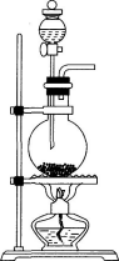Every Chinese-language textbook starts out with the standard phrases(短语)for greeting people;but as an American,I always found myself unable to speak freely when it came to seeing guests off at the door.Just a good-bye would not do,yet that was all I had ever learned from the terrible books.So I would smile and nod,bowing(鞠躬)like a Japanese and searching madly for words that would smooth over the visitor′s leaving and make them feel they would be welcome to come again.In my unease,I often hid behind the skirts of my Chinese husband′s kindness.
Then finally,listening to others,I began to pick up the phrases that eased relationships and sent people off not only successfully but also skillfully.
Partings for the Chinese include a lot of necessary habitual practice.Although I′m not expected to observe or even know all the rules,as a foreigner,I′ve had to learn the expressions of politeness and protest(抗议,反对)at a leaving-taking.
The Chinese feel they must see a guest off to the farthest possible point-down the flight of stairs to the street below or perhaps all the way to the nearest bus stop.I′ve sometimes waited half an hour or more for my husband to return from seeing a guest off,since he′s gone to the bus stop and waited for the next bus to arrive.
That′s very well,but when I′m the guest being seen off,my protests are always useless.My hostess or host,or both,insists on seeing me down the stairs and well on my way,with my repeating the"Don′t bother(give the trouble)to see me off"at every landing.If I try to go fast to discourage them from following,they are simply out to the discomfort of having to run after me.Better to accept the inevitable(不可避免的).
Besides,that′s going against Chinese custom,because haste(doing things quickly)is to be avoided.What do you say when you part from someone?"Go slowly."Not farewell or Godspeed(祝福),but"Go slowly.".To the Chinese it means"Take care"or"Watch your step",or some such caution,but translated literally(照字面地)it means"Go slowly".
It is stated dearly that the writer
- A.is interested in the Chinese-language textbooks
- B.is proud of being able to greet people at the door
- C.is unsatisfied with the Chinese-language textbooks
- D.is afraid of the standard phrases from the textbooks
正确答案及解析
正确答案
解析
考情点拨:事实细节题。应试指导:从第一段前两句可知,作者在汉语语言课本里学到的标准语言在实际生活中用不上,可见她对汉语语言课本不满意。





